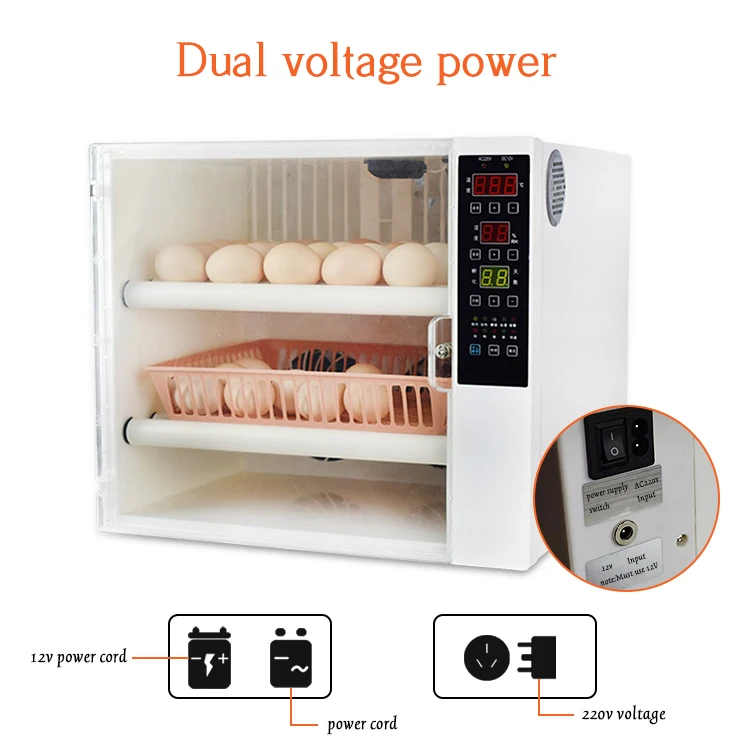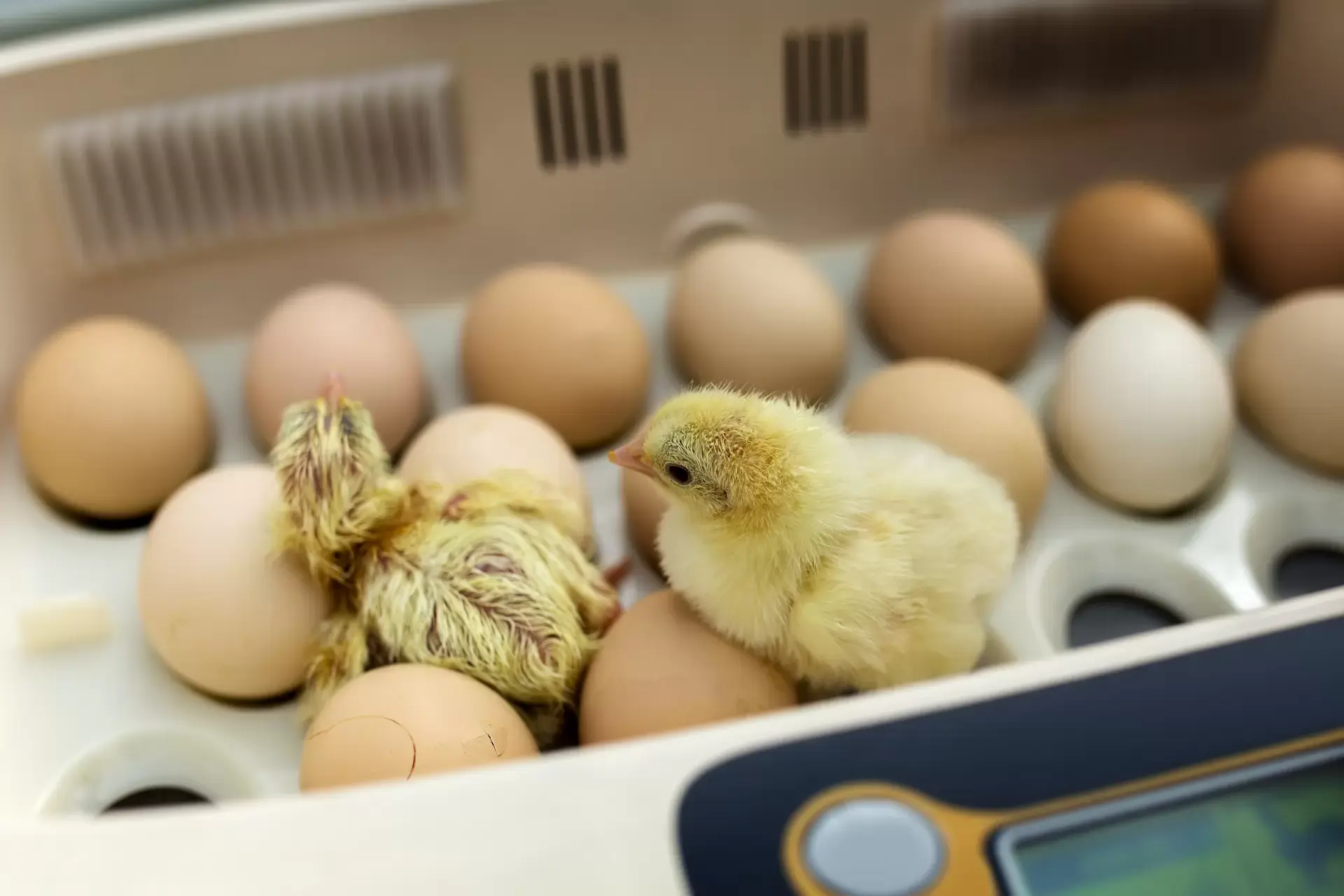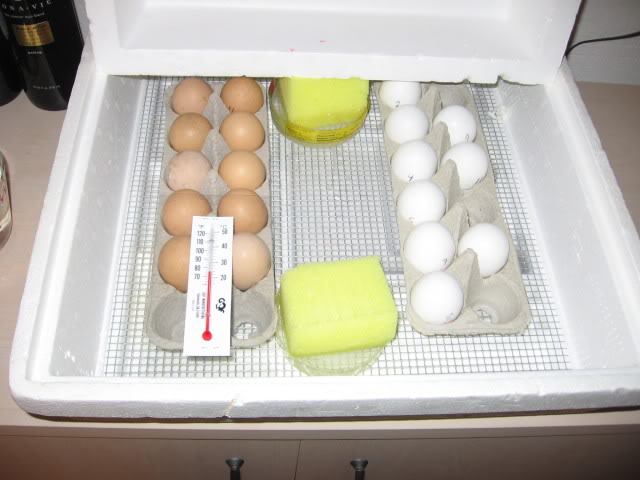

Humidity in incubator for chicken eggs full#
Humidity is important only to achieve the right balance between excessive dehydration and space within the egg as it reaches full term. Only temperature and egg turning affect growth of the embryo directly. It is important also to understand that humidity does not directly affect embryo development unless the egg is seriously dehydrated. It should be noted in general that a slightly lower humidity level than optimum is likely to be less disastrous than a slightly higher than ideal level. These chicks will tend to be weak and may also die just before, during, or just after hatching. To small chicks with large air spaces by the time the hatch is due. The bill becomes gummed up with drying mucus. Often, because of pressure within the egg, the bill protrudes too far out of the initial hole preventing the normal anti-clockwise progress of the bill chipping the shell from inside. In this case the air space will be too small, the chick's respiration will be affected and the young bird will have difficulty breaking out of the shell because of the lack of space.Ĭommonly, with excess incubation humidity, chicks will die just before or after having broken through the shell in one place C'pipped") either through weakness because of the lack of air to breathe in the shell or because of lack of space to tum and cut around the shell with their bill.

If the incubation humidity has been too high the egg will have lost too little moisture and the chick will be rather large. It is the first air that the fully developed chick breathes and the space allows the developed chick some movement inside the shell to allow it to maneuver into hatching position. This air space plays a crucial part in hatching. The amount of water that an egg loses during incubation is important and this is determined by the humidity levels within an incubator if the humidity level is higher then the egg will "dry out" more slowly than if the humidity is lower.Īll eggs have an air space at the round end and as water is lost through the shell it is replaced by air drawn through the shell into the air space which gradually increases in size. The Effect of Humidity Upon the Incubating EggĮgg shells are porous - they allow water to pass through, and so all eggs, whether being incubated or not, dry out slowly.
Humidity in incubator for chicken eggs free#
Also check that the eggs are fertile and the parent stock healthy, properly fed, and free from in-breeding. This article explains the effect ofĭifferent humidity levels, measurement of humidity, and the best techniques for achieving correct humidity levels.īefore spending time and effort checking incubation humidity levels, it essential to ensure that temperature and egg turning are correct - refer to the unit's operating instructions.


However, there are times when incorrect humidity levels do cause problems :ind further steps are needed to check that humidity levels are correct. The operator instructions that accompany all incubators give guidelines to achieve correct humidity levels for most species under normal conditions and in the majority of cases this gives excellent results so first check that you have followed these guidelines. Humidity is the most difficult of the four to monitor accurately and to control and therefore is commonly misunderstood. , ables which must be controlled during egg incubation - the others being temperature, ventilation, and movement (turning). It doesn't have to be so a few simple procedures can take the mystery out of humidity and put control back in the hands of the operator. When other factors appear correct humidity is often blamed for poor hatches but whether too high or too low may still be in doubt. No aspect of incubation causes more confusion and concern than humidity.


 0 kommentar(er)
0 kommentar(er)
